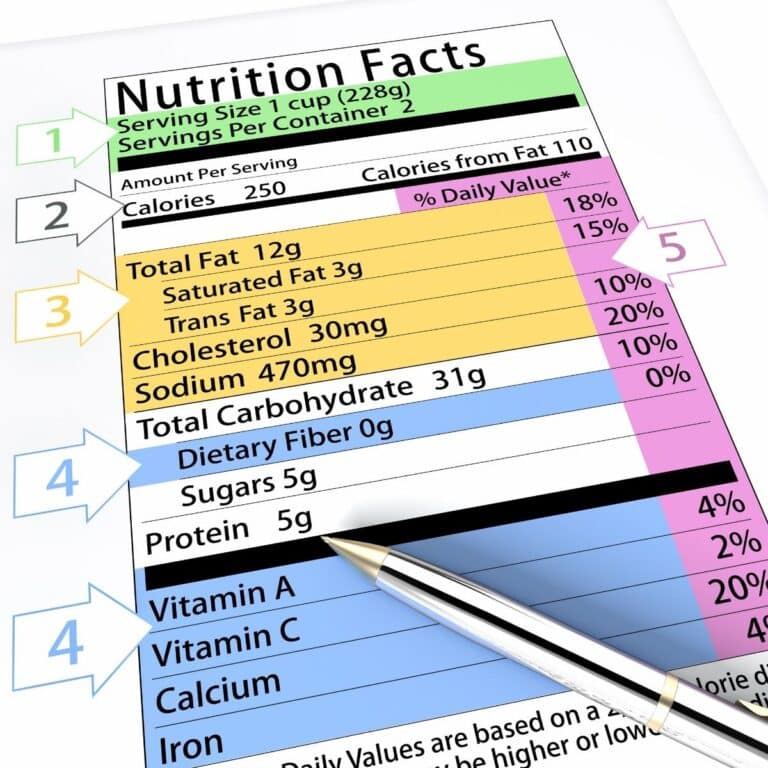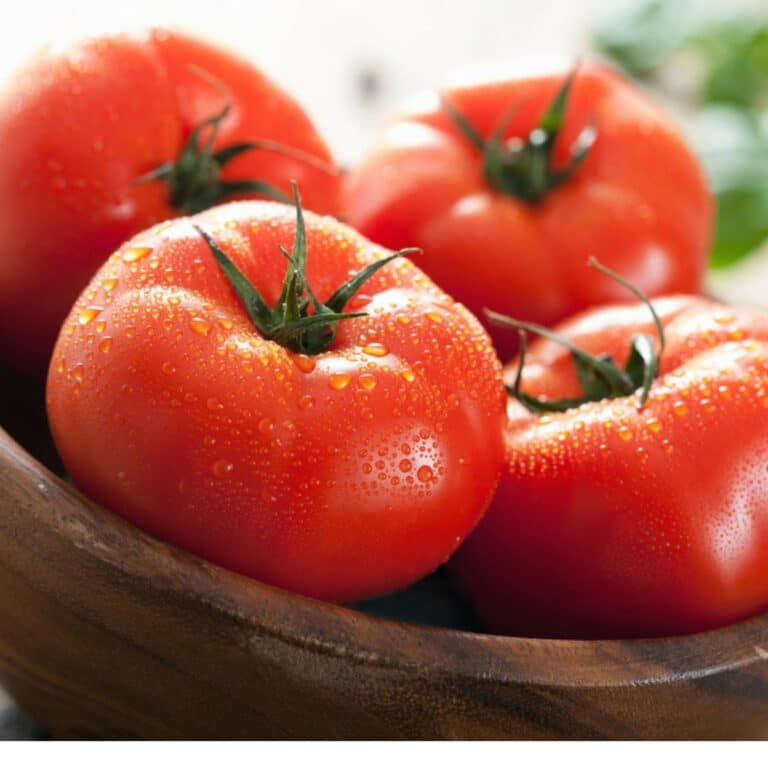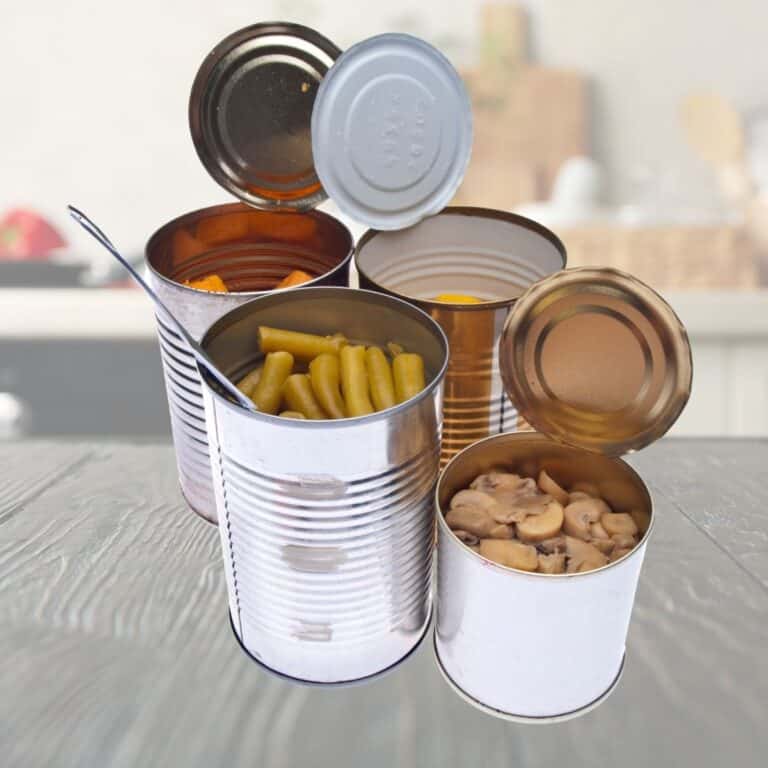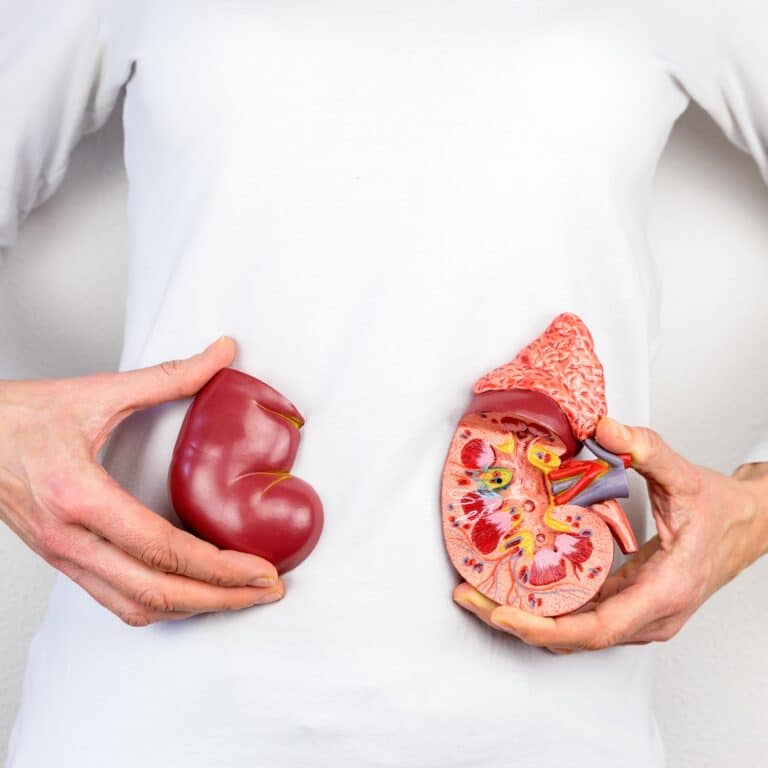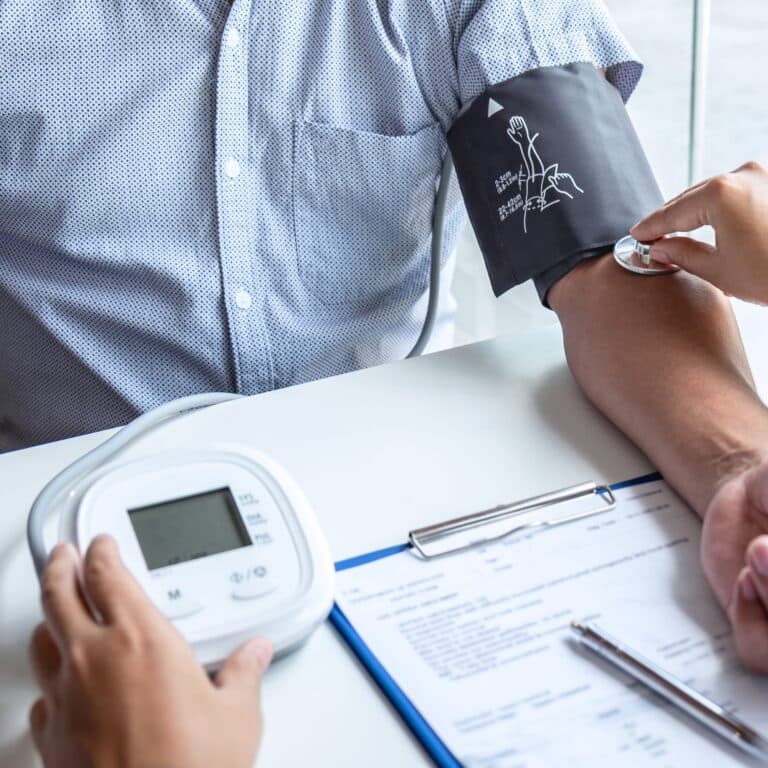Questions About The Kidney Disease Diet
If you or a loved one has been diagnosed with chronic kidney disease (CKD), you may be wondering how diet plays a role in managing the condition. The truth is, what you eat can have a significant impact on your kidney function and overall health.
With so much information available online, it can be overwhelming trying to navigate the dos and don'ts of a kidney-friendly diet. In this article, we will address some common questions about the kidney disease diet and provide evidence-based answers to help guide you on your journey towards healthy kidneys.
You might be wondering: How does diet affect CKD? Can a vegetarian diet help manage CKD? Is protein harmful for CKD patients? Are nuts and seeds safe to eat?
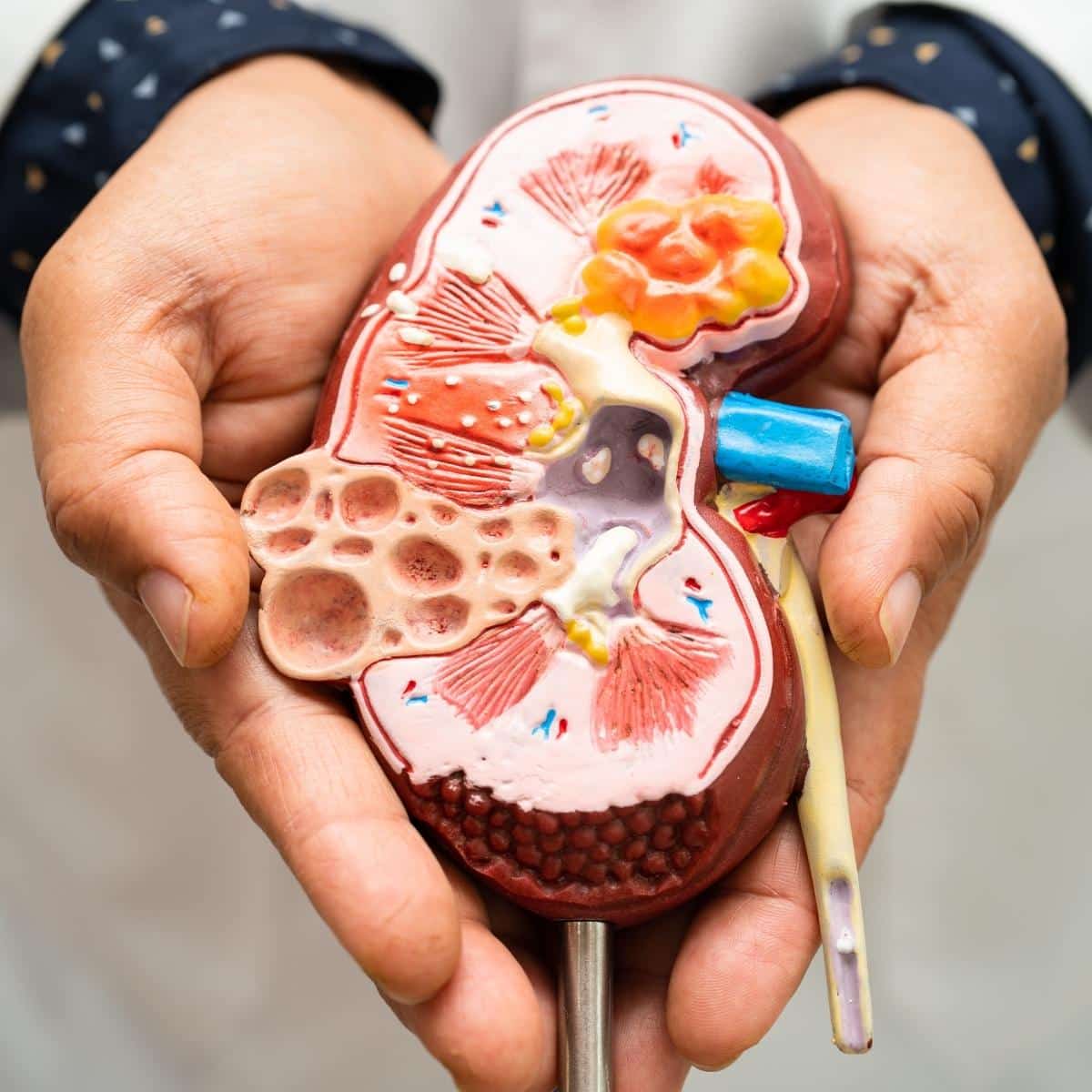
These are just some of the many questions that individuals with CKD may have when it comes to their dietary choices. It's important to note that there is no one-size-fits-all approach to nutrition for those living with CKD, as each person's needs may vary based on factors such as stage of the disease, age, gender, and other medical conditions.
However, by working closely with your healthcare team and following evidence-based recommendations, you can make informed decisions about what foods to include or avoid in your daily meals.
Jump to:
- Key Takeaways
- How Does Diet Affect Chronic Kidney Disease (CKD)?
- Can diet reverse CKD?
- Who needs to make dietary changes for CKD?
- Is protein harmful for CKD patients?
- Can a vegetarian diet help manage CKD?
- Can a low-protein diet slow the progression of CKD?
- Is a low-carb diet safe for someone with CKD?
- How does weight loss affect CKD?
- Are there any drinks I should avoid with CKD?
- How much sodium should I consume if I have CKD?
- How much potassium should I consume with CKD?
- How much phosphorus is safe for me to consume with CKD?
- Are nuts and seeds harmful for someone with CKD?
- What types of fats should I eat with CKD?
- How can a dietitian help with my CKD diet?
- Are there any kidney-friendly recipes available for CKD patients?
- A Kidney Diet Is Essential To Manage Kidney Disease
Key Takeaways
- A low-protein diet may help slow the progression of CKD, and plant-based proteins like beans, lentils, and tofu provide an excellent source of nutrition.
- Specific diet restrictions may be recommended based on individual needs, such as limiting high-potassium or high-phosphorus foods.
- Healthy lifestyle changes such as quitting smoking, regular exercise, and maintaining a healthy weight can help manage CKD.
- Consulting with a registered dietitian who specializes in renal nutrition can help ensure meeting nutritional needs and creating a personalized meal plan that meets your nutrition guidelines while also incorporating your favorite foods.
For More Recipes and Ideas --->> Get Your Free Meals and Recipes That Are Perfect for Pre-Dialysis Diets, Pre-Dialysis with Diabetes, or Dialysis Diets.
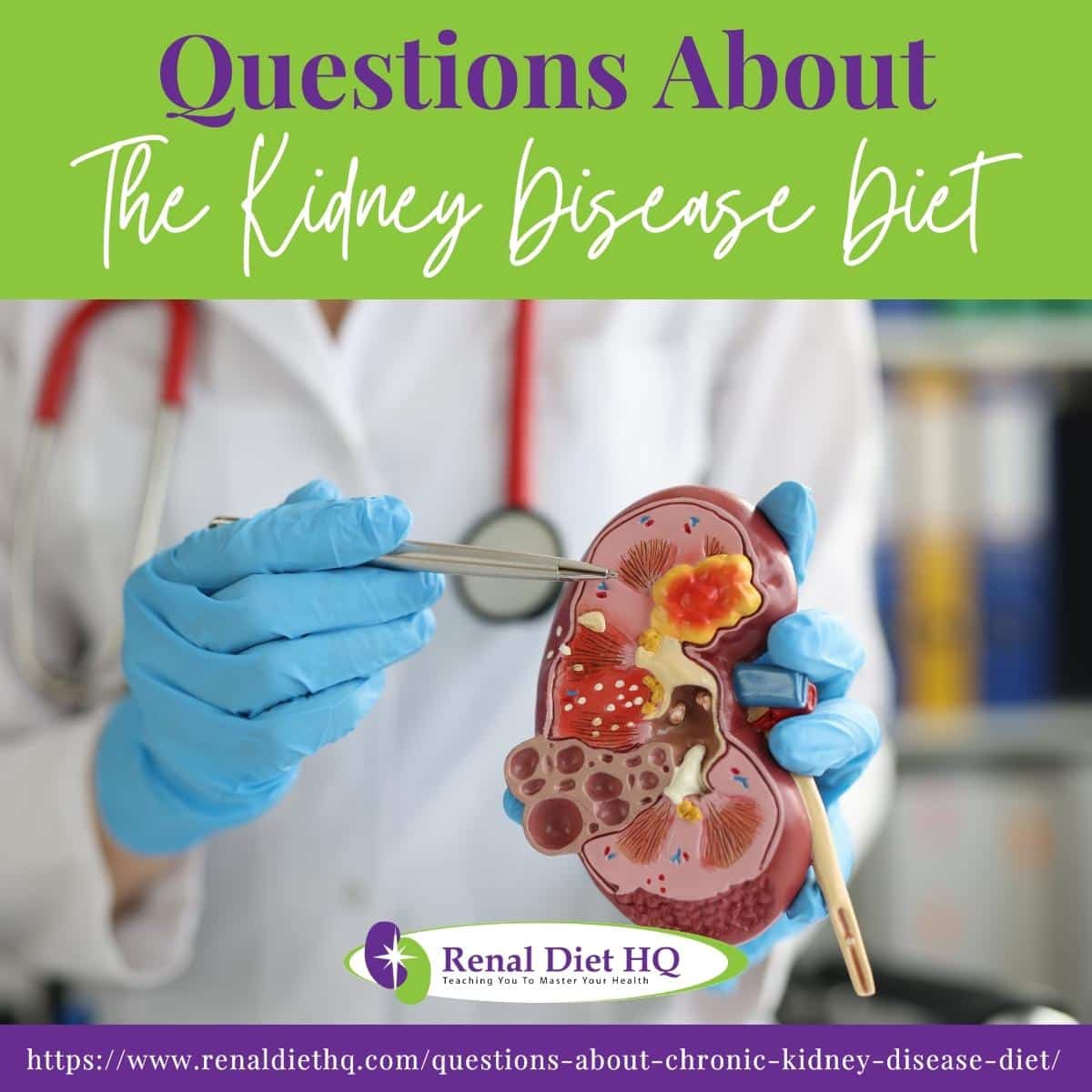
How Does Diet Affect Chronic Kidney Disease (CKD)?
You'll need to be mindful of what you eat, as each bite can either help or harm your kidneys, think of your diet as a tool for managing CKD.
Dietary restrictions (renal diet restrictions) are essential in managing CKD. Your doctor may recommend limiting foods that are high in sodium, potassium, and phosphorus. You should also limit your intake of protein since too much protein can cause damage to the kidneys.
Nutrient intake is crucial when following a kidney-friendly diet. You'll want to focus on consuming foods that are low in sodium, potassium, and phosphorus while still getting enough nutrients to support your overall health.
Meal planning can help ensure you're eating the right foods in the right amounts. Work with a registered dietitian who specializes in renal nutrition to develop a meal plan that meets your individual needs.
Fluid management is another critical aspect of a kidney-friendly diet. For early stage kidney disease, it may be recommended to drink 8 glasses of water each day to keep your kidneys working well. However, your doctor may recommend limiting extra fluids if you have fluid retention or if you're on dialysis.
Lifestyle changes such as quitting smoking, exercising regularly, and maintaining a healthy weight can also help manage CKD. By making these changes and following a healthy eating plan, you can improve your overall health and reduce symptoms associated with CKD.
Can diet reverse CKD?
Eating certain foods and making lifestyle changes can potentially improve kidney function in those with chronic kidney issues. While diet can't cure CKD, it can help manage the condition and slow kidney disease progression. Nutritional therapy is a crucial aspect of disease management for individuals with CKD.
Dietary restrictions are necessary for those with CKD to avoid putting more stress on their kidneys. A diet low in sodium, potassium, and phosphorus is typically recommended.
Consuming foods high in these minerals can lead to complications such as high blood pressure levels and bone problems. Limiting protein intake may also be necessary to reduce the workload on the kidneys.
In addition to dietary restrictions, lifestyle changes can also improve kidney function. Maintaining a healthy weight through regular exercise can not only benefit overall health but also reduce the risk of further decline of kidney function.
Managing blood sugar levels if you have diabetes is also crucial since uncontrolled diabetes can cause further damage to the kidneys. Quitting smoking and controlling blood pressure are other lifestyle changes that can help slow down the progression of CKD.
Who needs to make dietary changes for CKD?
Any person that has been diagnosed with any stage of chronic kidney disease should start making dietary changes immediately. The sooner you make changes and start living a healthy lifestyle, the better your overall health and well-being will be. In fact, the earlier you start the easier it is to stop or slow the progression of kidney failure. You could effectively stop your illness in its tracks and avoid end-stage kidney disease by acting now (avoid end stage renal disease).
Is protein harmful for CKD patients?
Protein can be harmful for individuals with chronic kidney issues, potentially leading to further damage and complications. The kidneys are responsible for filtering waste products from the bloodstream, including excess protein.
When kidney patients consume too much protein, their kidneys may not be able to filter it properly. This can lead to a buildup of waste products in the blood, which can cause further damage to the kidneys over time.
It's important for those with CKD to find a nutritional balance that meets their dietary restrictions while providing adequate protein intake. Recommended daily protein intake levels vary based on individual factors such as age, sex, and activity level. However, most patients with CKD should aim for a lower protein diet than what is typically recommended for healthy people.
There are several alternatives to traditional high-protein sources such as meat and dairy that can help patients manage their protein intake. Plant-based proteins like beans, peas, lentils, and tofu provide an excellent source of nutrition without putting added strain on the kidneys.
Additionally, working closely with a registered dietitian or healthcare provider can help ensure that individuals with CKD adhere to proper dietary guidelines and avoid potential complications related to excessive protein intake.
Can a vegetarian diet help manage CKD?
A plant-based approach to managing chronic kidney issues can be a healthy and flavorful way to support your body's needs. A vegetarian diet can provide numerous benefits, including keeping your kidney disease from getting worse and reducing the risk of complications associated with kidney disease.
Additionally, plant-based diets are often rich in fiber, vitamins, and minerals that can help reduce inflammation and protect against chronic diseases. If you choose to adopt a vegetarian diet for managing your chronic kidney issue, it's important to pay attention to protein sources.
While meat is a common source of protein in many diets, there are plenty of plant-based options available such as beans, lentils, tofu, and quinoa. These foods contain high-quality proteins that can help maintain muscle mass and support overall health.
However, it's important to note that nutrient deficiencies are possible on a vegetarian or vegan diet if meal planning is not done properly. It may be necessary to supplement certain vitamins or minerals such as vitamin B12 or iron.
Consulting with a registered dietitian who specializes in renal nutrition can help ensure that you're meeting all of your nutritional needs while following a plant-based diet for managing CKD.
Can a low-protein diet slow the progression of CKD?
Limiting intake of protein may help slow the progression of chronic kidney issues. This type of diet reduces the amount of protein that your body needs to metabolize, which can ease the workload on your kidneys.
However, it is important to note that not all patients with CKD need to follow a low-protein diet, and the specific guidelines for protein intake will depend on individual factors such as stage of CKD, age, sex, and activity level.
To determine if a low-protein diet is right for you, it is important to consult with a registered dietitian who specializes in kidney disease nutrition. They can provide personalized guidance on how much protein you should be consuming each day. In addition, they can offer tips and recipes for incorporating protein alternatives into your meals. Some sources of plant-based proteins include beans, lentils, tofu, nuts and seeds.
While reducing protein intake has been shown to have benefits for slowing the progression of CKD, it is also important to consider potential drawbacks such as muscle loss. Maintaining adequate muscle mass is important for overall health and quality of life. Therefore, it is recommended that individuals following a low-protein diet also engage in regular physical activity to prevent muscle loss and consume enough calories from other food sources to meet their energy needs (why low protein diet in kidney disease).
By working closely with a healthcare team and following personalized guidelines for protein intake and physical activity levels, individuals with CKD may be able to slow the progression of their condition while maintaining optimal muscle mass and overall health.
| Protein Intake Guidelines |
| Stage 1-2: < 0.8 grams/kg |
| Stage 3-5: < 0.6 grams/kg |
Table: Recommended daily protein intake guidelines based on stage of CKD. Source: National Kidney Foundation.
Is a low-carb diet safe for someone with CKD?
Following a low-carb diet may not be safe for individuals with chronic kidney issues, as it can put additional strain on the kidneys. This is because when you consume fewer carbohydrates, your body produces ketones, which are acidic substances that need to be excreted by the kidneys. If your kidneys are already damaged, they may struggle to handle this extra workload and lead to further complications.
However, there are still low-carb options available for those with CKD. You can opt for healthy, low-carb foods such as non-starchy vegetables, nuts, and seeds, and lean protein sources like fish or chicken. Additionally, alternative diets such as the Mediterranean diet or DASH have shown benefits in managing CKD without putting undue stress on the kidneys.
It's important to keep in mind that any dietary restrictions should be discussed with your healthcare provider or a registered dietitian who specializes in kidney disease. They can provide you with individualized meal planning strategies that meet your specific nutritional needs while taking into account any potential risks associated with certain diets.
By following a well-balanced and personalized meal plan, you can effectively manage CKD while maintaining good overall health.
How does weight loss affect CKD?
If you have CKD, weight loss can have significant benefits. Losing weight can improve blood pressure, reduce the risk of heart disease, and slow the progression of kidney disease. However, it is important to approach weight loss with caution and under medical supervision.
Following a kidney-friendly eating plan is crucial for managing CKD. Your healthcare provider may recommend specific diet restrictions based on your individual needs. For example, they may advise limiting foods high in potassium or phosphorus. It is also important to maintain adequate protein intake while reducing calorie consumption for weight loss.
In addition to dietary changes, exercise recommendations may be made by your healthcare provider. Regular physical activity can help with weight loss and improve overall health outcomes for those with CKD.
Incorporating lifestyle changes such as healthy eating habits and exercise into your daily routine can help manage symptoms and improve quality of life. Remember that any changes should be made under medical supervision to ensure safety and effectiveness.
| Benefits of Weight Loss | Diet Restrictions | Exercise Recommendations |
| Improves blood pressure | Limiting high-sodium or high-phosphorus foods | Incorporate regular physical activity |
| Reduces risk of heart disease | Maintaining adequate protein intake while reducing calories | Follow healthcare provider's recommendations |
| Slows progression of kidney disease | Maintaining adequate potassium intake | Exercising for at least 150 minutes per week |
Overall, if you have CKD and are considering weight loss as part of your treatment plan, it is important to work closely with your healthcare provider to determine the best course of action for you. A combination of dietary changes, exercise recommendations, and medical supervision can lead to better outcomes in managing symptoms and improving quality of life.
By incorporating these lifestyle changes into your daily routine, you can take control of your health journey and serve yourself in the best way possible.
Are there any drinks I should avoid with CKD?
Steering clear of certain beverages is crucial for those with CKD to manage their condition effectively. Here are some drinks that you should avoid when dealing with CKD:
- Soda: Carbonated drinks can lead to an increase in blood phosphorus and sugar levels, which can be harmful to your kidneys.
- Alcohol: Drinking alcohol can cause many harms, including dehydration and disruption of electrolyte balance in your body, in addition to leading to further kidney damage (renal diet and alcohol).
- Herbal teas: While many herbal teas have health benefits, some may contain high levels of potassium or other minerals that could harm your kidneys. Be sure to talk to your doctor before consuming any herbal teas.
- Energy drinks: Similar to soda, these beverages often contain large amounts of phosphorus and sugar, both of which can stress your kidneys and contribute to further damage.
Staying hydrated is important for managing CKD, but it's also important to choose hydrating beverages wisely. Opt for water or kidney-friendly fruit juices instead of sugary sodas or energy drinks. If you do choose a sports drink, make sure it doesn't contain too much potassium or phosphorus.
Avoiding certain beverages is essential for managing CKD effectively. Consult with your kidney doctor about the best beverage choices for you based on the current stage of your CKD and follow these tips above to help keep yourself hydrated and healthy!
How much sodium should I consume if I have CKD?
To effectively manage your condition and promote kidney health, it's important to limit your daily sodium intake to a certain amount if you have CKD. Sodium is an essential mineral that helps regulate blood pressure and fluid balance in the body, but excess water can cause fluid buildup for people with kidney problems.
The recommended daily sodium intake for individuals with CKD is less than 1,500 milligrams per day.
Fluid intake management is also crucial when it comes to managing CKD. Consuming too much sodium can cause excessive thirst and lead to increased fluid retention in the body, which can put more strain on the kidneys.
To help maintain a healthy fluid balance, aim to drink enough fluids throughout the day while also limiting your sodium intake. You may also need to monitor your potassium levels and adjust your meal planning accordingly (meal planning for families with CKD).
It's important to note that dietary restrictions may vary depending on the stage of CKD you're in and any other underlying health conditions you may have. Your healthcare provider or registered dietitian can help you develop a personalized meal plan that takes into account your individual nutritional needs and limitations.
By following a balanced diet that includes appropriate amounts of sodium, managing fluids properly, and staying hydrated, you can help support your overall kidney function and improve your quality of life.
How much potassium should I consume with CKD?
You should aim to consume a moderate amount of potassium if you have chronic kidney problems, as it plays an important role in maintaining healthy heart and muscle function. However, too much of this mineral can be harmful, leading to hyperkalemia or high levels of potassium in the blood. It's essential that you monitor your potassium intake and follow any restrictions set by your healthcare provider.
Hyperkalemia can cause symptoms such as muscle weakness, tingling, numbness, heart palpitations, and shortness of breath.
Potassium can be found in many foods such as fruits, vegetables, dairy products, and meats. Some examples of potassium-rich foods include bananas, oranges, spinach, sweet potatoes, tomatoes, and salmon. While these foods are generally considered healthy for most people, those with CKD may need to limit their intake due to their increased risk for developing hyperkalemia.
Your healthcare provider may also recommend taking potassium supplements if your diet alone doesn't provide enough of this mineral. However, it's crucial to follow the prescribed dosage carefully as taking too much can cause serious health complications.
Regular monitoring of your potassium levels through blood tests is also necessary to ensure that they remain within a safe range while on a kidney disease diet plan (kidney diet plan).
How much phosphorus is safe for me to consume with CKD?
Consuming too much phosphorus can be harmful for those with chronic kidney problems, as it can lead to bone and heart complications. Safe phosphorus intake is important for individuals with CKD, as the kidneys are not able to filter excess amounts of this mineral from the body.
High phosphorus foods such as dairy products, meat, fish, and whole grains should be limited or avoided altogether. Phosphorus binders may also be prescribed by a healthcare provider to help manage dietary phosphorus levels. These medications work by binding with excess phosphorus in the digestive tract before it is absorbed into the bloodstream. However, it's still important to follow a low-phosphorus diet even when taking these medications (ckd and diabetes medications).
Regular testing of phosphorus levels is also recommended for individuals with CKD. This allows healthcare providers to monitor how well dietary interventions and medication management are working in controlling blood phosphorus levels. Overall, managing dietary phosphorus intake is crucial for those living with CKD in order to prevent complications and maintain overall health.
Are nuts and seeds harmful for someone with CKD?
Nuts and seeds can be problematic for individuals with CKD due to their high phosphorus content. These foods are often touted as healthy snacks due to their high nutrient content, but they can also contain a significant amount of phosphorus.
This mineral is important for bone health, but it can accumulate in the blood when kidney function is impaired, leading to complications such as bone disease and cardiovascular problems.
To maintain nutritional balance while managing your kidney disease diet, it's important to practice portion control when consuming nuts and seeds. Stick to small servings and avoid eating them on a daily basis. You can also try soaking or roasting these foods before consumption to decrease their phytate content, which is a storage form of phosphorus.
Additionally, hydration management is crucial for individuals with CKD, so make sure you're drinking enough water throughout the day to help flush out excess minerals (fluids to hydrate with kidney disorder).
While nuts and seeds may pose some challenges for those with CKD, they do offer many health benefits if consumed in moderation. They are rich in heart-healthy fats, fiber, vitamins, and minerals that play an important role in overall health.
To optimize nutrient absorption from these foods, consider using food preparation techniques such as grinding or blending them into smoothies or spreads rather than consuming them whole.
With careful planning and attention to your food plan, you can still enjoy the many benefits of nuts and seeds while managing your kidney disease.
What types of fats should I eat with CKD?
Optimizing your fat intake with CKD involves choosing the right types of fats that can help promote heart health and overall well-being. Healthy fats, like omega 3 sources, are essential for maintaining a nutrient balance and reducing inflammation in the body.
Omega 3 sources include fatty fish such as salmon, mackerel, and sardines, as well as flaxseed oil or chia seeds. It's also important to pay attention to cooking methods when consuming fats.
Opt for healthy oils like olive oil or avocado oil which have anti-inflammatory properties. Additionally, keeping portion control in mind is crucial, even healthy fats should be consumed in moderation to avoid weight gain which can lead to further complications.
Incorporating healthy fats into your diet can be beneficial for those with CKD by reducing inflammation and promoting heart health. Choosing the right sources of omega 3s along with mindful cooking methods and portion control can help maintain a balanced diet while managing kidney disease symptoms.
Consult with a registered dietitian specialized in kidney disease management for personalized recommendations on optimizing your fat intake with CKD.
How can a dietitian help with my CKD diet?
Working with a registered dietitian can be incredibly helpful in managing your CKD nutrition plan, as they can provide personalized recommendations and support to help you achieve optimal health. Here are some benefits of working with a dietitian:
- Personalized Plan: A dietitian can create a proper nutrition plan that is tailored specifically to your needs, taking into account your medical history, lifestyle, and food preferences. This personalized approach ensures that you're getting the nutrients you need without compromising on taste or convenience.
- Meal Preparation: A dietitian can also help with meal planning and preparation, making it easier for you to stick to your nutritional goals. They can provide recipes and cooking tips that are kidney-friendly and easy to prepare at home.
- Grocery Shopping: Knowing what foods to buy at the grocery store can be challenging when following a CKD diet. A dietitian can teach you how to read food labels and identify ingredients that may be harmful to your kidneys. They can also recommend healthy alternatives that'll keep you feeling satisfied.
In addition to these benefits, working with a dietitian may also involve lifestyle changes such as increasing physical activity or reducing stress levels. By taking a holistic approach to your health, a registered dietitian can help you manage CKD more effectively and improve your overall quality of life. So if you're struggling with your CKD nutrition plan, consider reaching out for professional support from a registered dietitian today!
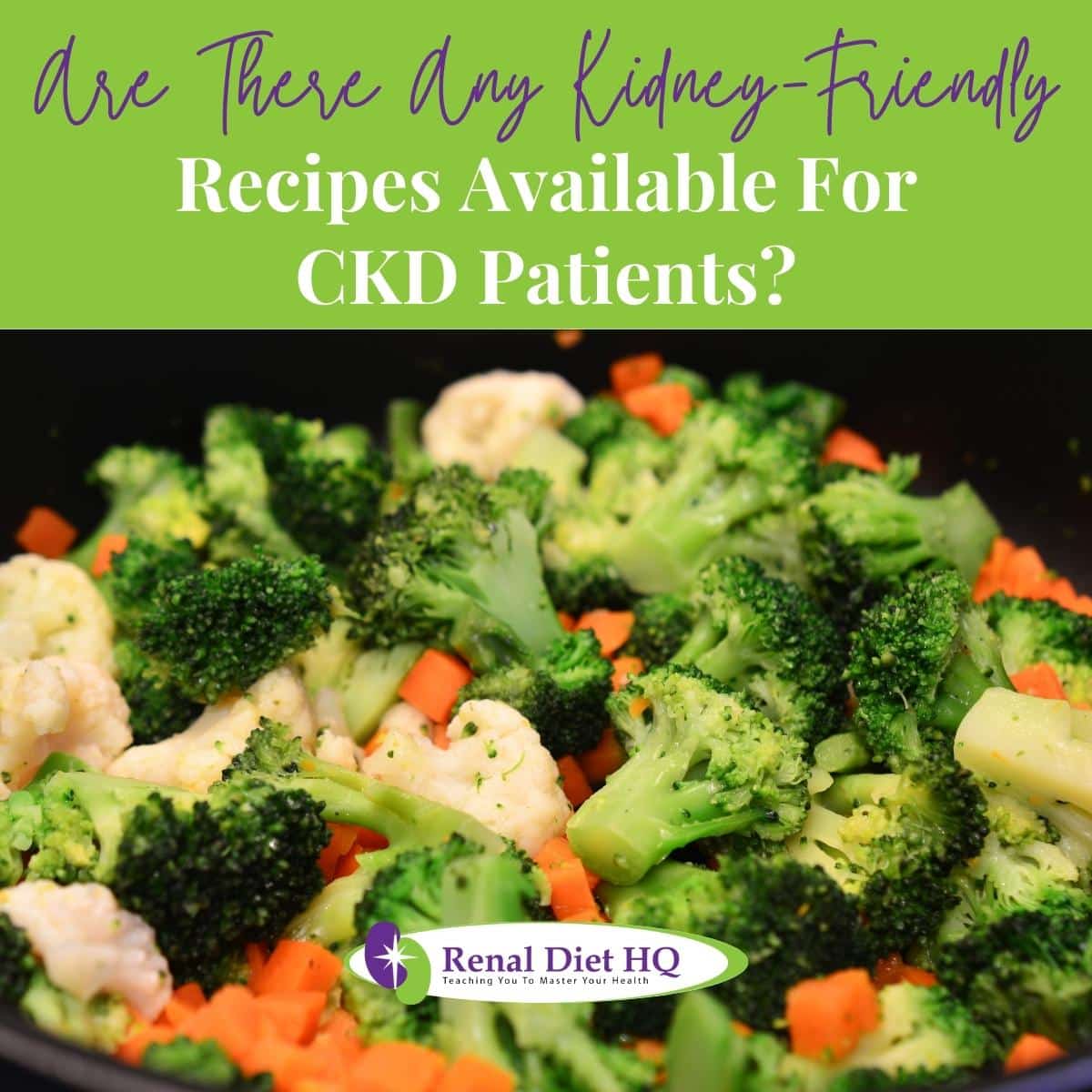
Are there any kidney-friendly recipes available for CKD patients?
Looking for tasty recipes that are healthy and safe for your kidneys? You're in luck! There are plenty of kidney-friendly cuisine options to choose from.
When it comes to recipe ideas, it's important to keep in mind the dietary restrictions that come with CKD. This means limiting foods high in phosphorus, potassium, and sodium.
Meal planning is key when following a CKD diet. A registered dietitian can help you create a personalized meal plan that meets your nutrition guidelines while also incorporating your favorite foods. They can also provide you with kidney-friendly recipe ideas and cooking tips.
Some popular options include roasted vegetables with herbs, grilled chicken or fish with lemon and garlic seasoning, and quinoa salad with fresh veggies.
When it comes to kidney-friendly cuisine, there are many delicious and nutritious options available. By working closely with a dietitian and experimenting with new recipes, you can still enjoy flavorful meals while maintaining a healthy diet that supports your kidney health.
So why not try something new today? Your taste buds and your kidneys will thank you!
A Kidney Diet Is Essential To Manage Kidney Disease
In conclusion, managing your diet is crucial in the management of chronic kidney disease (CKD). Your diet should be tailored to meet your specific needs and goals by a registered dietitian.
Eating a balanced diet rich in fruits, vegetables, and whole grains while limiting sodium, protein, and phosphorus intake can help slow down the progression of CKD (progression of symptoms for CKD). However, it's important to note that no one diet fits all when it comes to CKD management.
Vegetarian diets may also be beneficial for those with CKD as they're naturally low in protein levels and have been shown to prevent or delay the onset of kidney disease.
In addition, incorporating healthy fats such as olive oil and nuts into your diet can provide numerous health benefits without compromising the level of kidney function.
By working closely with a registered dietitian and making mindful food choices, you can improve your overall health and quality of life while managing CKD.





